Research and knowledge exchange
The National Centre for Universities and Business (NCUB) looked at the ONS data on R&D spending and drew some stark conclusions
- According to ONS data released today the UK experienced a 3.4% increase in real terms in government R&D spending in 2022, from £14.98 billion to £15.49 billion. This growth level, however, is significantly less than other OECD nations.
- Dr Joe Marshall, Chief Executive of the National Centre for Universities and Business (NCUB) said: “Whilst government spending in R&D has grown from £14.98 billion in 2021 to £15.49 billion in 2022, some 3.4% growth in real terms, we still lag behind the OECD average of a 6% investment growth. This should ring alarm bells. The UK’s global R&D competitiveness will slip if we do not keep up with the growth seen around the world.”
- Marshall concluded: “This comes against a backdrop of worrying trends in private investment in research and development. Around the world, private R&D investment rose by an average of 5% in real terms in 2022 across the OECD, with even higher growth in countries such as the US, Japan and South Korea. However, private R&D investment in the UK actually declined by 0.4%. We therefore face an uphill battle to fully capitalise on our R&D potential. By fostering an environment conducive to innovation and collaboration, the UK can position itself as a leader in R&D, driving economic prosperity and societal advancement.”
Education
Admissions
UCAS has announced some changes to the information provided on their system to support students with making their choices. You will recall that UUK issued a Fair Admissions Code a while ago which recommended, among other things, that actual (rather than advertised) entry grades should be published to students. The new UCAS data will include historic entry grades and offer rates.
Teaching Excellence Framework: the post mortem continues
The QAA have analysed the TEF results in what might be read as a guide to getting gold next time.
Degree apprenticeships
The House of Commons Library has published a research briefing: these are always interesting as they provide a survey of the latest data.
Funding: The existing apprenticeship funding system for England has been in place since May 2017. Apprenticeships are generally funded in the following way.
- Each apprenticeship standard is associated with a funding band. The upper limit of this band represents the maximum the Government will contribute towards training and assessment costs of the apprenticeship.
- Employers and training providers negotiate a price for training and assessment.
- Apprenticeship levy funds will be used to pay for the training and assessment for employers paying the levy (up to the upper limit of the funding band).
- Employers who do not pay the levy will pay 5% of the cost of training and assessment with the government contributing the remaining 95% (up to the upper limit of the funding band). The Government will fund all of the apprenticeship training costs, up to the funding band maximum, for apprentices who are aged between 16 and 21 years old when they start their apprenticeship.
- Training and assessment costs above the upper limit of the funding band will be paid for separately by the employer. Levy paying employers will not be able to use levy funds.
- Additional payments may be paid to the employer and training provider depending on the characteristics of the apprentice and the type of apprenticeship.
Apprentices are paid at least the minimum wage for their work and study/training time. This rate depends on the apprentice’s age and whether or not they have completed the first year of their apprenticeship.
Note this bit on page 32 of the briefing:
- In 2022, a literature review of all the available evidence of the impact of degree apprenticeships on social mobility and productivity was published and said, “when it comes to social mobility, the results are mixed”. However, it argued that, overall, degree apprenticeships were having “a notable positive impact on social mobility.”60 It suggested reports that would challenge this conclusion were published during the infancy of the degree apprenticeship programme, when employers focussed on upskilling their current workforce, rather than recruiting direct school leavers.
- Nevertheless, it also said achieving equity in access to degree apprenticeships in some sectors may remain a challenge for a while, and so recommended the Institute for Apprenticeships and Technical Education (IfATE), with the support of sector organisations, should formulate policies and guidelines for recruitment from under-represented backgrounds, and encourage stronger collaboration between employers and training providers in recruitment and enrolment.
Degree apprenticeships are not really reaching the students from the most deprived backgrounds nor those from non-white ethnic groups. There are slightly more males doing them than HE. Unsurprisingly (given the common perception that they are often taken up by existing employees) the age profile is older.
And what are they studying? Mostly business, administration and law, or health, public services and care.
Office for Students key performance metrics
Did you know that the Office for Students has key performance metrics and that they are not all about how the OfS is doing in meeting its own internally set deadlines or such like. In fact they relate mostly to how the sector is doing in meeting the requirements imposed under the licence regime.
So, for example, key performance measure 1 is the extent of poor student outcomes across the sector: where poor is below the B3 threshold.
Something I haven’t talked about for a while is grade inflation. A hot topic a while ago although things have gone rather quiet, and probably something that will come back up again sooner rather than later. the last analysis was published in May 2022. You’ll remember its interesting use of the term “unexplained”: “The term ‘unexplained’ in this context means that changes in attainment over the time period cannot be statistically accounted for by changes in the characteristics of the graduating cohort, in terms of the explanatory variables included in the statistical modelling. It is not possible to deduce from this analysis what factors not included in the modelling (such as improvements in teaching quality or more diligent students) could also be driving the observed changes in degree attainment.”
As the OfS website says “KPM 3 shows that the proportion of students awarded first class degrees in 2021-22 was 32.5 per cent. This proportion had increased every year between 2010-11 and 2020-21, but in 2021-22 it decreased for the first time from a high of 37.0 per cent in 2020-21.”
In that context it is interesting to look at KPM 7: “the proportions of graduates within broad ethnic groups who achieve first class degrees and compares these to the proportion of all students receiving a first class degree”
KPM 5 is about disadvantaged groups accessing HE. The usual data that is discussed in this context uses percentages and is confusing when overall numbers change. This view gives the absolute numbers and it is sad to see how stable the numbers are for the economically precarious and significantly disadvantaged groups and both these numbers went down in 21-22. Those were pandemic years: maybe when this data is updated for 22-23 there will have been an improvement.
Student experience, wellbeing and finances
Cost of living
HEPI have a new report on cost of living, having calculated a minimum income standard for students and then looking at the implications.
Key findings:
- Excluding rent, students need £244 a week to have a minimum acceptable standard of living. Including rent, students need £366 a week.
- Adjusting in line with rent prices in different parts of the UK, it is estimated that students need £18,632 a year outside London and £21,774 a year in London to reach MIS.
- For a student studying outside London, the maximum government maintenance support, provided to support students to meet their living costs, falls short by £8,405 for English students, £6,482 for Welsh students, £7,232 for Scottish students and £10,496 for Northern Irish students.
- For those studying outside of London, the maintenance support in England covers just 55% of the Minimum Income Standard (MIS) developed here. The Welsh maintenance support covers 65%, Scottish support covers 61% and Northern Irish support covers just 44% of MIS.
- For students studying in London, the gap is £8,426 if a student is from England, with the loan covering 61% of students’ costs. The gap is £6,604 if they are from Wales (support covers 70% of costs), £10,374 if they are from Scotland (support covers 52%) and £10,922 if they are from Northern Ireland, where support covers just 50% of students’ living costs.
- Even a student doing 10 hours a week of paid employment for the whole year and in receipt of the maximum maintenance support will not have enough money to reach MIS. English students must work nearly 19 hours a week at minimum wage, Welsh students more than 14 hours, Scottish students 16 hours and Northern Irish students 23 hours to reach MIS. By contrast, many universities recommend students should work no more than 15 hours during term-time.
- The parents of an English student who receives the minimum maintenance support and does no paid employment would have to contribute £13,865 a year for the student to reach MIS. For a Welsh student, the contribution is £6,482; for a Scottish student, it is £10,232; and for a Northern Irish student, it is £13,548.
- Additionally, under the current system, parents in England, Scotland and Northern Ireland are expected to contribute to their children’s living costs even if they do not themselves have enough money for a minimum acceptable standard of living.
We recommend that:
- The maximum level of government support should be increased in all four UK nations to help students reach MIS.
- However, government maintenance support should not cover all students’ expected costs. Instead, they might reasonably be expected to do some part-time work (though not so much it interferes with their studies). The suggestion in the report is around 10 hours per week, all year, which is roughly equivalent to working full-time over the summer holiday. Adjustments should be made for students who cannot work, due to high workloads, they have a disability that prevents them from working or other reasons.
- Parents should not be expected to contribute to their children’s living costs unless they have a minimum acceptable standard of living. This means the household income threshold at which parents are expected to start paying should be increased. Currently this stands at £25,000 in England, £21,000 in Scotland and £19,203 in Northern Ireland (parents are never expected to contribute in Wales).
Harassment and sexual misconduct consultation
As I was talking about OfS KPIs, I checked the date of the consultation on regulating harassment and sexual misconduct. It closed on 4th May 2023, so over a year ago. But is it due soon? It may be, as hinted in the next segment.
Protests and free speech
All universities have received a letter in the context of the current student protests asking them to be very careful about protecting students from harassment. Some university leaders were also called to Downing Street to be told to sort out their own campus protests: the same has been happening in the US. This is a very difficult area, with new freedom of speech guidance under consultation. It’s not clear who was called in: “some of the country’s leading universities,” apparently.
There’s also more money to support the University Jewish Chaplaincy Service.
This story from Wonkhe, suggests the consultation response on harassment and sexual misconduct may be out soon: The Office for Students’ powers to prevent harassment will be used to levy sanctions on universities that allow antisemitic reports on campus, according to reports in The Times. A government source has indicated that conditions of registration requiring universities to have robust policies to prevent student harassment will explicitly include Jewish students (in the light of recent protests), and would allow the OfS to investigate claims of antisemitism at individual universities.
NSS changes
The OfS are consulting on changes to the NSS, although really they are consulting on why they shouldn’t make any changes! the consultation is tantalising headed “theme measures, benchmarking and response thresholds,” but questions 2 and 3 are “tell us if you object to our decision not to change benchmarking and response thresholds”. And question 1? Drumroll….it requests comments on merging the current academic support and organisation and management questions into one theme. The themes are not named in this proposal. As a reminder, these sets of questions were slimmed down in last year’s NSS with two being dropped from academic support and the timetabling question being dropped from organisation and management, and no new questions added, so you can see why a tidy mind would want to merge these 4 questions into a single set. And the reason it matters is that last year there were no comparative data sets published because the questions had changed: but this year they will be able to show trends from last year, so the categories (listed as experimental last year) need to be confirmed. ICYMI, the NSS results for this year will be out on 10th July.
International
Security risks
There was a flurry in the news (Foreign states targeting UK universities, MI5 warns – BBC News) a couple of weeks ago about VCs (from the Russell Group” beng called to Downing Street to discuss threats from foreign states. It follows this in mid-April from the FT
- UK university vice-chancellors will be summoned for a briefing from the intelligence agencies on hostile states targeting British academia, as the government proposes a crackdown on security risks facing the sector.
- Oliver Dowden, deputy prime minister, on Thursday said the government would examine new curbs to protect sensitive technology developed in UK universities from being transferred to overseas competitors such as China.
- Ministers will also consider measures to prevent British institutions becoming too dependent on foreign investment, following a Whitehall review into security threats to UK academia.
There is existing guidance from UUK on sensitive research material.
Post-study work visa
The Migration Advisory Committee is due to provide its rather rapid review of the post-study work visa on 14th May, which is expected to result in further restrictions ahead of a general election. I will do a specific summary of that when it is published.
In that context, the Centre for Policy Studies has published a report “Taking Back Control” written by former Immigration Minister Robert Jenrick MP, former minister Neil O’Brien MP, and CPS Research Director Karl Williams. Most of it is not about HE, but the 36 recommendations, which can apparently be mostly implemented before the election, include:
- We should introduce an overall cap on sponsored study routes
- We should abolish the Graduate route outright. Foreign students who want to stay in the UK should need to find graduate-level jobs that meet the salary threshold within a six-month grace period at the end of their studies. The MAC is conducting a review into the Graduate route – which it recommended against in the first place – but we should act immediately, ahead of the September 2024 and January 2025 start dates for university courses.
- We should make universities accountable for their international students: where there is evidence of sustained abuse (such as very high dropout rates, low attendance and a drop in academic standards) they should be struck off the list of licensed study visa sponsors. We should focus initially on reviewing the 18 satellite campuses of non-London universities in London, which are geared towards international students on Masters courses of dubious quality.
- We should substantially revise the International Education Strategy (IES), ending the arbitrary 600,000 a year target for the number of international students. The IES instead needs to focus on quality over quantity, as per the grammar school approach to immigration. This will also move the Education and Business Departments away from constantly calling for more migration while resisting attempts at selectivity and control.
- We need a greater diversity of higher education provision – in particular, some local universities, such as the 18 provincial universities with London campuses, should reorient towards educating and training the local or regional population, rather than trying to educate the rest of the world. Reducing the number of international students on poor quality courses might entail some pain for the sector – but we should not shy away from this.
If all this negativity is getting you down, then there is a blog from David Willets on Conservative Home to cheer you up.
- …of those who came on a study visa 2008-2012 only 5 per cent were granted settlement within the subsequent ten years.
- The current net “migration” figures are heavily influenced by Covid distortions. Not many overseas students came during Covid. After Covid, there was a surge in overseas students as it included some of the backlog that had built up – rising to an exceptional net “migration” by students of 250,000 or more. This net figure is so high because there has not yet been a balancing flow of departures by the students who surged in post-Covid. The ONS estimate that when we return to the usual high levels of so-called “emigration” by students then that “may lead to a negative net migration estimate.” The next Government is very likely to benefit from this reversal of the Covid distortion. It is not a reason for further tightening now.
- To make these assessments of net migration more real and robust we should institute a proper system of counting people entering and leaving the country. We would know who came and who left the country. Instead, the figures are based on a survey by officials with a clipboard standing at a few airports and ports and asking a few people as they leave what they have been doing here. So if someone comes in to study and after that does a year’s work and gets questioned when they leave and says they’ve been working then the survey does not show that a student has left but a worker has left…
- … There is a competitive market for overseas students in which English-speaking countries dominate because of the attractions of being taught in the global language so we should match the way our competitors treat overseas students. We could follow the US and distinguish between “immigrants” and “temporary migrants.” Australia treats overseas students as “temporary entrants.” In Canada, overseas students are “non-permanent residents” as distinct from “immigrants.” This is not some linguistic trick – it reflects the reality of what voters worry about….
- …I accept that overseas students could be used as a potential means of getting controlled skilled migration of the brightest and best by a regime that gave a few of them the right to settle afterward if they achieve exceptional standards. This is roughly the American approach – going to study there has been called “the world’s longest job interview”. But that doesn’t mean we require them all to be the brightest and the best before they even turn up to study. We are selling an education service with some kind of experience of work thrown in to make the proposition more attractive. We then expect overseas students to leave….
- …The focus on the brightest and the best also leads to Robert Jenrick’s argument that overseas students are fine if they go to the Russell Group but not to “lesser” universities. This is the deep-seated idea that our prestigious research-intensive universities are “good” universities and the rest are “bad.” It is the influence of the Oxbridge who spent 60 years suppressing the creation of other universities and left us with only one model of what a good university looks like. However universities come in different shapes and sizes. A university can deliver world-class teaching or develop world-class links to business without doing world-class research. The University of Teesside focuses on auto-engineering for the nearby Nissan plant. Universities train our nurses and public health officers. Developing countries want to send some of their students to learn these skills…
- …I support sensible measures to tighten up the overseas student regime. That could include much tougher rules on dependents. There could also be tougher regulation of the agents advising overseas students. Above all we need the Home Office to share with universities the granular information they have on overseas students and their visa status so universities know whether they have left the country.
And HEPI, with Kaplan and the NUS have published a report with data from London Economics that once again emphasises the contribution that graduate route visa holders make to the economy.
- There were an estimated 66,410 Graduate Route visa holders in the UK in the 2022/23 tax year, split between 56,460 international graduates educated in UK higher education and 9,950 dependants.
- For every 10 Graduate Route visa holders, there were under two dependants and this ratio will decline significantly in the future due to the recent tightening of the rules on dependants – this took effect in January 2024 and has already seen a decline of around 80 per …..
- The benefits to the UK in higher tax revenues from hosting these Graduate Route visa holders are estimated to have been £588 million in 2022/23 (or £10,410 per main Graduate Route visa holder). These figures entirely exclude the wider and longer term benefits – for example, Graduate Route visa holders may choose to remain in the UK beyond their current visa through the Skilled Worker route.
- A comprehensive assessment of the costs to the Exchequer of Graduate Route visa holders in terms of public service provision comes to an estimated £517 million for 2022/23 (or £9,160 per main Graduate Route visa holder).
- This means the total net benefit to the UK Exchequer of hosting Graduate Route visa holders in the first full year of the scheme (2022/23) is estimated to be £70 million (or £1,240 per international graduate), disproving claims that the UK loses out financially.
- The financial benefits of the Graduate Route visa are on course to increase materially, as the Home Office estimated 173,000 Graduate Route visas would be granted in 2023/24 and slightly more the following year, meaning over 350,000 Graduate Route visa holders could be in the UK by April 2025. This would increase the direct economic benefits by over five times the level in the first full year of the Graduate Route’s operation. Meanwhile, the costs are set to fall significantly as a result of the new rules on dependants.
Wonkhe has an article on how we got to where we are now and a view on job prospects and how they impact choices, and another piece on what might come next.
The first article points out some interesting historical contextual points:
- Expansion was supposed to be all about STEM: but in the end most of the growth in international students has been in business and management and social care
- The big expansion was supposed to take 10 years but it happened almost overnight
HE sector sustainability and change
Fees for foundation years
Finally, after a very long wait, the detail of the new foundation year fee caps has been published. The document obviously has to define what the new limits apply to, which is in itself interesting.
Provision can be considered a foundation year if it meets all of criteria 1 to 5:
- It is an additional year of study (120 credits under the LLE) and is integrated at the start of an undergraduate course in a way which extends the overall length of the course. (A foundation year can be studied full-time, part-time or in an accelerated format, but should always be equivalent to 1-year – (or 120 credits and 1,200 notional learning hours) of full-time study. )
- It is integrated with an undergraduate course, such that a student does not typically enrol for the foundation year alone, but for an entire undergraduate course.
- It enables students who meet the progression requirements to proceed directly to an integrated undergraduate course.
- It is not a standalone course, and does not typically result in a standalone, recognised qualification.
- It is designed to equip a student with the skills and knowledge needed to be successful in an integrated undergraduate course. A foundation year may include modules such as study skills, academic research or functional numeracy, alongside modules that are directly related to the content of a student’s chosen undergraduate course.
- It may be undertaken at an institution (which may or may not be a registered higher education provider) that is different from the registered HE provider to which the student applied and with which the student has enrolled, through a franchising arrangement.
So, with that cleared up, what is the new limit?
- Fees for foundation years that start from 1 August 2025 will be capped at either £5,760 or the maximum fee limit for the 2025/26 academic year (currently £9,250).
- The lower fee cap of £5,760 will apply to classroom-based foundation years from 1 August 2025 (subject to Parliamentary approval of the necessary amending legislation). The term “classroom-based” refers to subjects currently in OfS Price Group D (at the time of this publication)
- Some undergraduate courses are interdisciplinary, including taught content that spans more than one subject area. These courses can be assigned more than one HECoS subject code at the point of registration with the SLC. For these courses, the lower fee cap should be applied to the foundation year if more than 50% of the HECoS subject codes it is registered with are lower-fee subjects (listed in this guidance).
The subjects are listed here. It’s a long and detailed list by HECoS code.
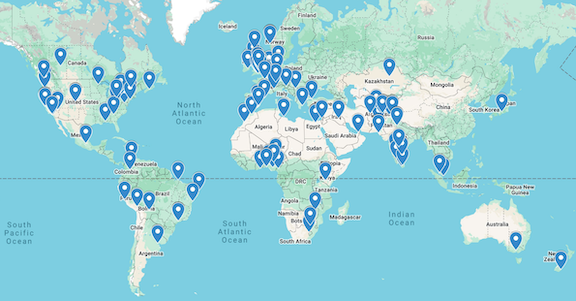
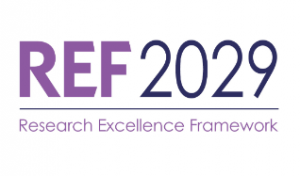 We are looking to recruit an impact champion to help support our REF submission in
We are looking to recruit an impact champion to help support our REF submission in 

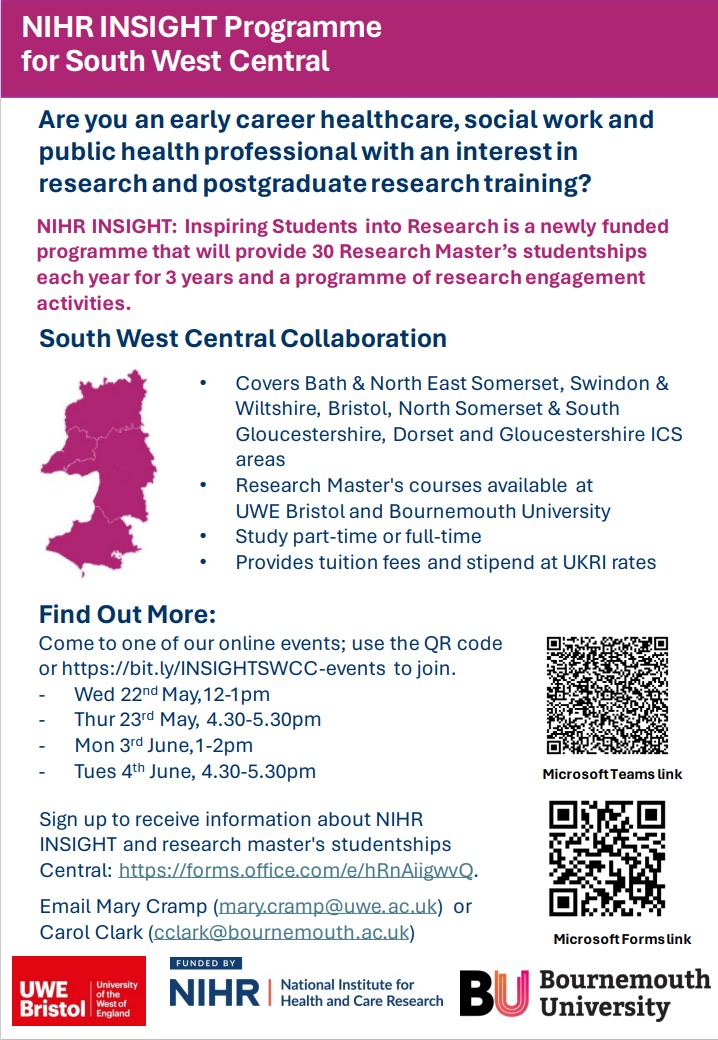


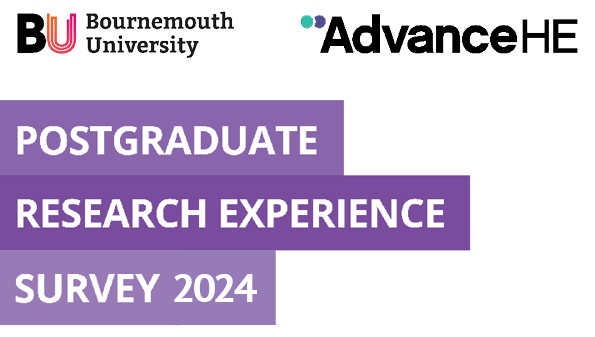

 How Game-Based Learning is Revolutionising Cybersecurity Education
How Game-Based Learning is Revolutionising Cybersecurity Education
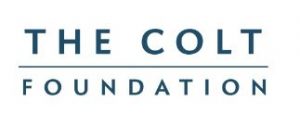
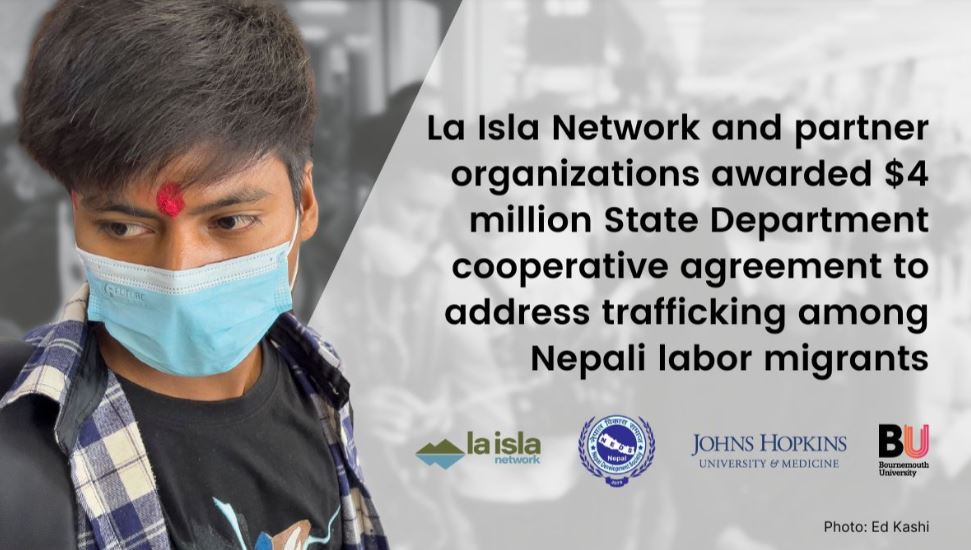

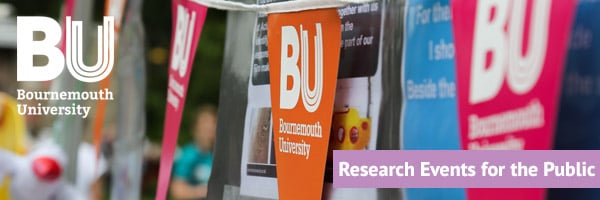


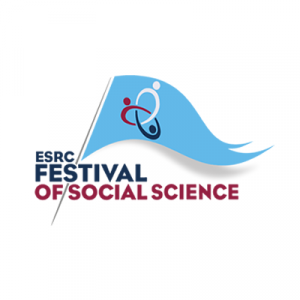 About the Festival of Social Science
About the Festival of Social Science










 From Sustainable Research to Sustainable Research Lives: Reflections from the SPROUT Network Event
From Sustainable Research to Sustainable Research Lives: Reflections from the SPROUT Network Event REF Code of Practice consultation is open!
REF Code of Practice consultation is open! BU Leads AI-Driven Work Package in EU Horizon SUSHEAS Project
BU Leads AI-Driven Work Package in EU Horizon SUSHEAS Project ECR Funding Open Call: Research Culture & Community Grant – Apply now
ECR Funding Open Call: Research Culture & Community Grant – Apply now ECR Funding Open Call: Research Culture & Community Grant – Application Deadline Friday 12 December
ECR Funding Open Call: Research Culture & Community Grant – Application Deadline Friday 12 December MSCA Postdoctoral Fellowships 2025 Call
MSCA Postdoctoral Fellowships 2025 Call ERC Advanced Grant 2025 Webinar
ERC Advanced Grant 2025 Webinar Update on UKRO services
Update on UKRO services European research project exploring use of ‘virtual twins’ to better manage metabolic associated fatty liver disease
European research project exploring use of ‘virtual twins’ to better manage metabolic associated fatty liver disease